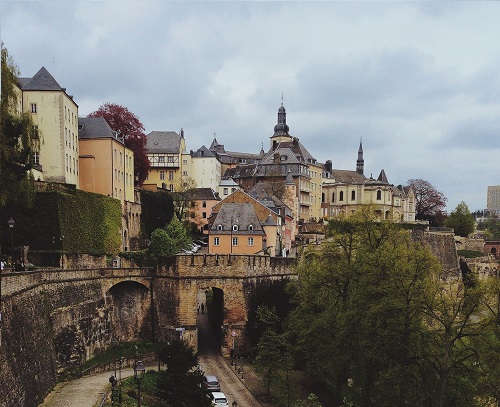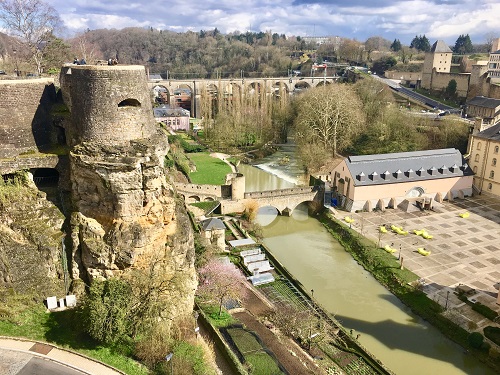Renting property
If you’re looking to rent in Luxembourg, then it’s worth bearing in mind that apartments are the most commonly available type of accommodation there.Typically, rental contracts are renewed on a one- or two-year basis in Luxembourg, and you’ll need to give three months’ notice if you want to move out early. Bigger apartments are sometimes let out for three years at a time, whereas studios can be renewable on a six-month basis. Most properties come unfurnished, and you may need to pay for utilities and property services separately.
To sign your lease, you may need a translator to go over the terms, unless you are fluent in a local language, i.e. French, German, or Luxembourgish. You’ll also need your passport, a work visa, proof of your employment status, and proof of your income. Your landlord may additionally ask for references.
You’ll need to pay a security deposit upfront, which is usually equivalent to two months’ rent. This deposit will be deposited into an escrow account and won’t be touched until you and your landlord agree to withdraw it. You’ll also need to pay annual liability insurance, usually around €250, which covers the house and the items in it in case of theft, fire, water damage, or natural disasters.
After you’ve signed the lease, but before you move in, you and your landlord will go over an inventory, or etat des lieux, of the condition of the property. Make sure you go through it carefully, as you’ll be charged at the end of your stay for any damage to the property or its furnishings that isn’t noted.
Expats looking for properties to rent can start by looking at the government’s published housing figures here, to get a sense of current prices. You can then check out online property portals, such as At Home and Habiter, for listings. Myspace may be useful if you are looking for a furnished apartment. You can also look in local newspapers, such as Le Quotidien and Luxemburger Wort. Keep in mind that if you use an estate agency, you’ll need to pay a month’s rent plus VAT in fees.

You’ll find that prices vary depending on where you want to live. Apartments in Luxembourg City are the most expensive, with rents in the surrounding towns lower. Example rents for unfurnished accommodations include:
• A one-bedroom apartment will cost an average of €1,800/month in Luxembourg City and €1,600/month in the suburbs
• A three-bedroom home will cost an average of €3,500/month in Luxembourg City and €2,800/month in the suburbs
Expect to pay up to, but no more than, double, if you are looking for a furnished apartment.
Buying property
There are no restrictions on foreigners buying real estate in Luxembourg, so if you want to buy your own home there, you should have no problems. The system is similar to that in the UK, and isn’t too complicated to navigate. However, you may need a translator if you don’t speak one of Luxembourg’s three languages.
Buying property in Luxembourg is not cheap. Houses there are expensive, and to buy one, you’ll need to be able to pay a 20%-25% deposit up front, along with significant property tax. A steep capital gains tax is applicable if you sell your property within two years, but this is halved if you sell after that time period.
If you’re looking for property for sale, you can search in the newspapers, or you can use the same online property portals as listed above. Alternatively, you could go directly to a real estate agency to help you in your search, such as REMAX. You can check out the average price per square metre for various properties at Wort Immo.

Once you’ve found a property you want to buy, you’ll put in an offer and sign a commitment to sale agreement, or compromise de vente. You’ll then set out to secure your mortgage. It may be an idea to first contact the Housing Assistance Department of the government, to see whether you qualify for any loans and grants through them. If you don’t, you can deal directly with banks. Once you have received an offer for a mortgage, you’ll pay a surveyor to do a valuation of the property. If you and the bank are in sync on the valuation, you’ll then need to pay a deposit of up to 25%.
A notary is required to administer all payments, and you’ll have to pay their fee, which is usually 1.5% of the property’s value. You can find a listing of available notaries here. Before the bank will approve your mortgage, you’ll need to show proof of having taken out an insurance policy.
You’ll then sign a contract with the property’s seller that includes both of your names and addresses, the details of the sale, including payment terms, and the exact date that you can take possession of the house. From there, you’ll pay the registration tax, which is 6% of the property’s value, a transcript tax of 1%, and annual property taxes of up to 8%.

